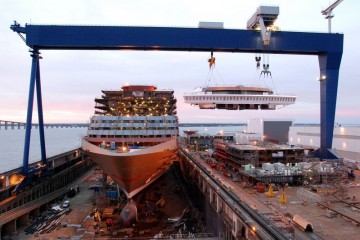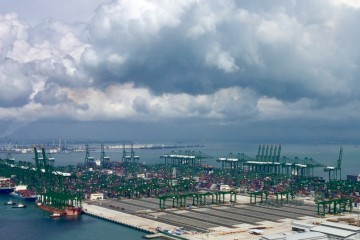Stop the focus on pharaonic infrastructure investments, pay more attention to creating economic value; that was in essence the message of an important report that was released last week in the Netherlands. Important, because it could herald the end of the government doctrine that channelled a lot of public money and political energy into an unprecedented amount of port-related infrastructure in Rotterdam that still needs to prove its commercial viability. Important also for a wider audience, because it gives us the opportunity to reflect on an important question: why do we need ports?
Why do we need ports?
The question seems almost too trivial, yet it is hardly ever very clearly answered. To make money, would be one answer, but that alone clearly would not justify a public interest in ports. Generating jobs would be another answer, but job generation is not a goal in itself – and if it would be, ports would not be effective instruments, as there are other sectors that are clearly much more labour intensive. Creating economic value, is the answer given in the report we just cited and although this answer makes sense, much actually depends on how we define economic value. Ports often release studies to show the “economic value added” of the port and the firms dependent on the port. More economic value added is better, is the idea. Proving that means proving you did a great job. Ironically however, “economic value added” could also mean exactly the inverse. Let’s see why.
Facilitate trade
The main reason why we need ports is to facilitate trade, so to make exports and imports as easy as possible. Bad ports create barriers; good ports make sure firms do not lose time, money or cargo. And here the irony of measuring port economic value kicks in. Imagine we have an efficient port where we introduce an administrative burden – say, the obligation to have a certificate from a customs broker before cargo can be released. The customs broker will earn money with it, so the economic value added of the port cluster will increase. Yet, it is clear that we diminished value rather than added value: the barrier to trade will add time and costs to national industries. However, these costs will rarely show up in the port economic impact studies.
Mind shift needed
The reason why ports exist is because cargo needs to be moved, yet most ports hardly ever talk to cargo owners: the shippers, the firms that export and import. Instead, most of them are maniacally obsessed with being attractive to shipping companies. In this beauty contest, a lot of money is spent to provide facilities that shipping companies can abandon from one day to another; and they regularly do: economic value destruction in action. For ports, one way out of this cynical game is to create partnerships with cargo-owners, provide value in reliable, smooth and better door-to-door services. This is how ports create value. This will require a mind shift, but it is essential if ports want to be useful.
Now, just a few words on the case of Rotterdam that we mentioned before. It creates real economic value for firms that export and import, in the Netherlands, but actually mostly for firms outside the country. So its main problem is maybe not so much that it is declining on a flawed indicator of economic value, but rather that it never convincingly explained why Dutch taxpayers’ money is needed to create value for German industry – nor managed to make German industry pay more for the use of port-related infrastructure, such as the Betuwe line.



